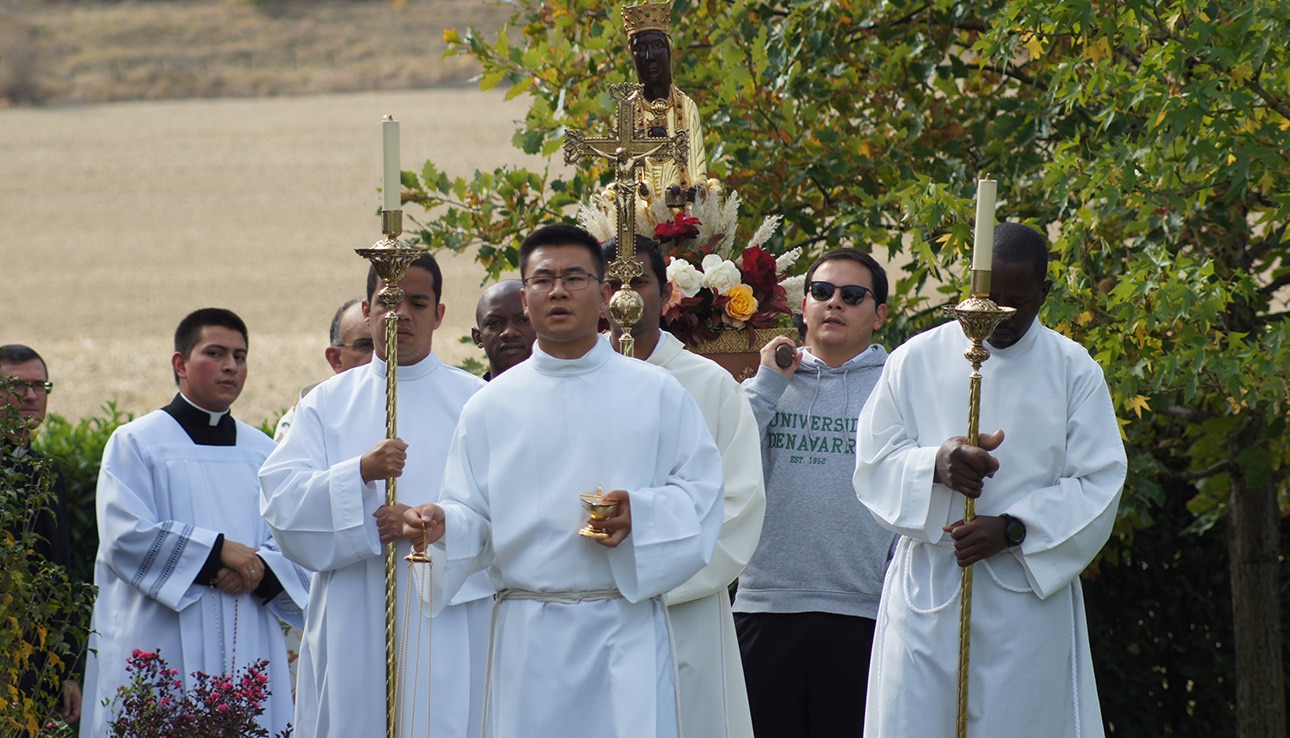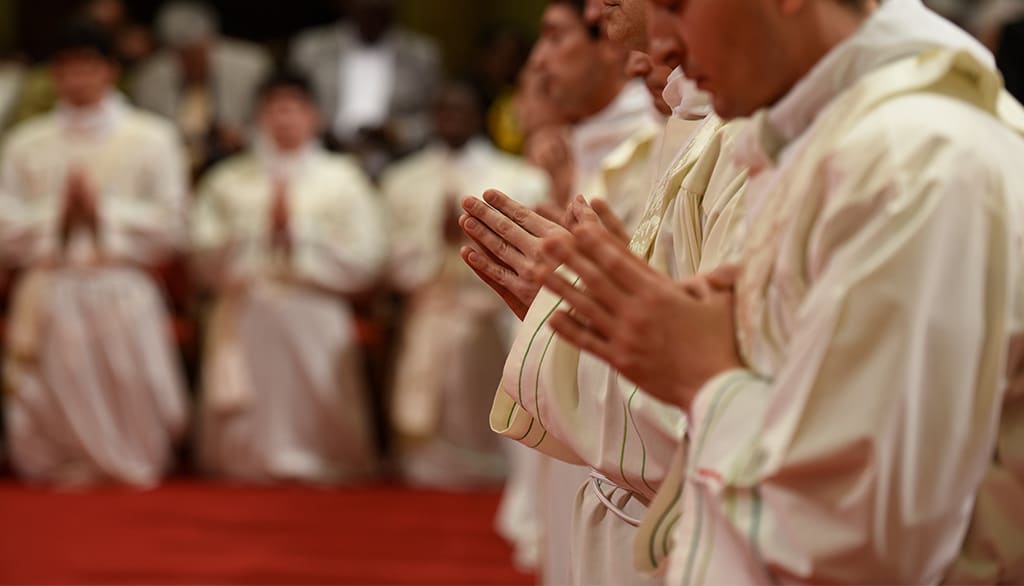
On the feast day of the Sacred Heart of Jesus, the Church celebrates the World Day of Prayer for the Sanctity of Priests and seminarians. In 2019, on the occasion of this day, Pope Francis invited all Catholics through his prayer network to pray for priests and students studying in seminaries "so that, with the sobriety and humility of their lives, they may engage in active solidarity, above all, towards the poorest."
In the CARF Foundation this year we are launching this small campaign encouraging to pray for the holiness of all priests.
A vocations ministry that serves as a fertile ground for new vocations begins with much prayer, especially in the adoration of the Blessed Sacrament with holy hours in the parishes, with the younger priests involved in youth ministry. In this way, by intensifying their interior life and their love for Jesus-Eucharist, and with priests as a model, many could consider the call to the priesthood.
3. A father figure for future seminarians and priests.
Pope Francis assures us that "the paternity of the pastoral vocation consists in giving life, making life grow; not overlooking the life of a community". St. Joseph is a good model for both seminarians and their formators on the road to becoming a priest. With his total dedication, Jesus is the manifestation of the Father's tenderness. Therefore, "Jesus grew in wisdom and stature, and in favor with God and man" (Lk 2:52).
The Pope tells us that every priest or bishop should be able to say like St. Paul: "[...] through the Gospel, it is I who have begotten you for Christ Jesus" (1 Cor 4:15). St. Paul was very concerned about the formation of priests. In his first letter to the Corinthians he expresses vehemently: "Do you want me to come to you with a stick or with love and a spirit of gentleness? The formators and priests who accompany seminarians must be as a good father, who listens, accompanies, welcomes and corrects with gentleness, but with firmness.

4. The Christian family as a seedbed of vocations.
The family is the first agent of pastoral care for vocations (in all areas of the Church). The Christian family has always been humus and "educational mediation" for the birth and development of vocations, whether celibate, priestly or religious.
A family pastoral care that integrates the vocational dimension must also form parents in dialogue with their sons and daughters about their faith and the way they understand the following of Jesus. But above all, vocations are forged by the example of parents in their love for God and for each other.

5. Support the formation of seminarians.
Pope Francis mentions four pillars to support the formation of every seminarian: spiritual life, prayer, community life and apostolic life. He also delves into the spiritual dimension of seminarians, placing special emphasis on the "formation of the heart".
Having well-trained priests has a positive impact on the high cost for dioceses. Upon entering the seminary, an aspirant to the priesthood has ahead of him at least five years of ecclesiastical studies, equivalent to a bachelor's degree and a specialization. This is followed by two years or more of doctoral studies in which the completion of a research thesis is contemplated.
Many dioceses, especially in poor countries, lack either the resources to support their seminarians, or priests with sufficient formation to be seminary formators and provide candidates with adequate accompaniment. This is where the CARF Foundation and your help. With your donation you contribute to the formation and maintenance of diocesan priests and seminarians for their studies in Rome and Pamplona with the commitment to return to their diocese of origin.
Benedict XVI, on the occasion of the celebration of the Year for Priests 2010, began a letter with an anecdote from his youth. When, in December 1944, the young Joseph Ratzinger was called up for military service, the company commander asked everyone what he wanted to be in the future. He replied that he wanted to be a Catholic priest. The second lieutenant replied: "You will have to choose something else. In the new Germany there is no longer any need for priests".
"I knew," says the Holy Father, "that this 'new Germany' was coming to an end, and that after the enormous devastation that that madness had brought to the country, priests would be more necessary than ever. Benedict XVI adds that "even now there are many people who, in one way or another, think that the Catholic priesthood is not a 'profession' with a future, but rather belongs to the past". Despite this current sentiment, the reality is that the priesthood has a future because, as the Pope himself says at the beginning of his letter to seminarians, "even in the age of the technological domination of the world and of globalization, people will continue to need God, the God manifested in Jesus Christ and who gathers us together in the universal Church, to learn with him and through him the true life, and to have present and operative the criteria of a true humanity".
Bibliography:
Pope Francis, Apostolic Letter Patris corde.
European Congress on Vocations, Working Paper.
Pope Francis, Message for the 57th World Day of Prayer for Vocations.
Benedict XVI, Letter on the occasion of the celebration of the Year for Priests 2010.